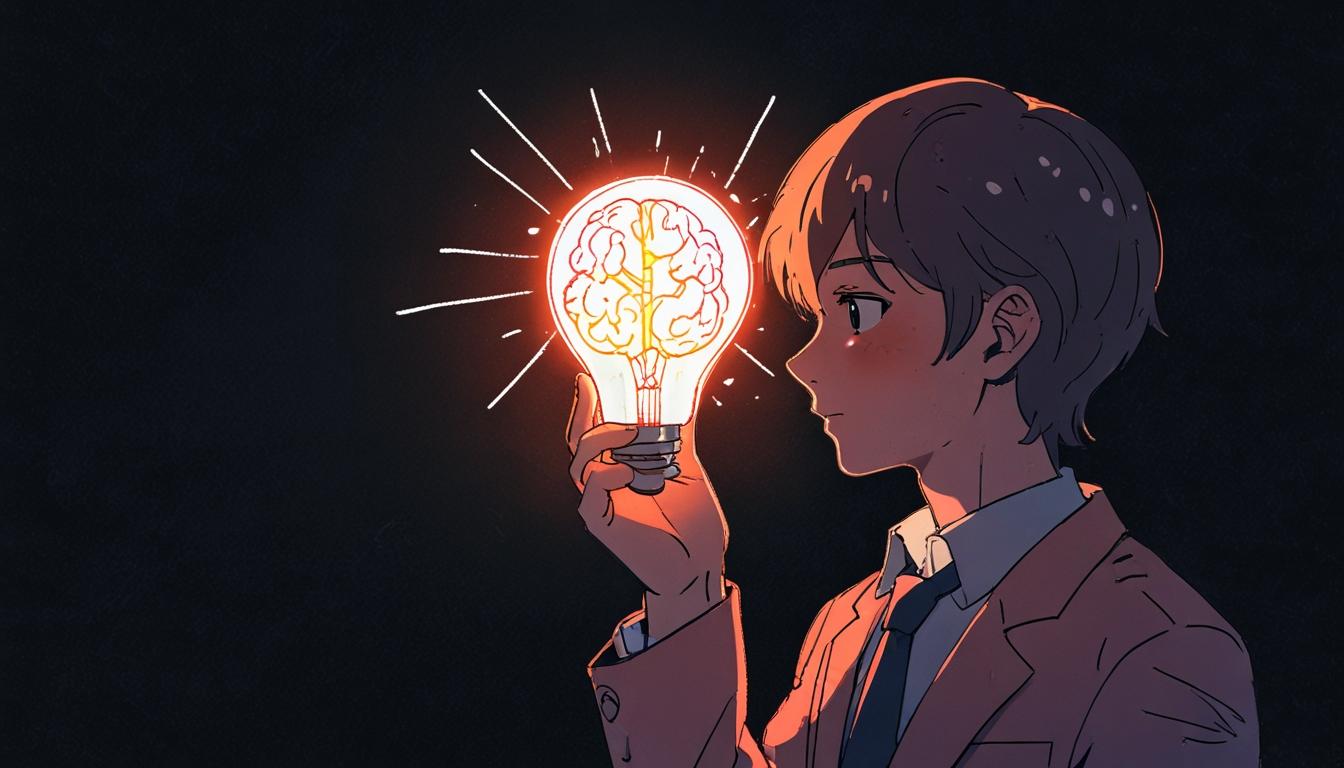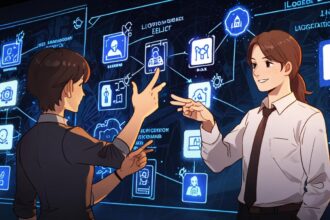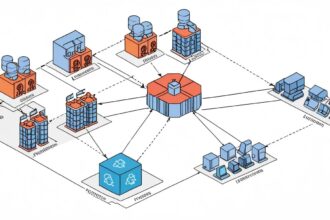Tom Zhang, a recent Staples High School graduate and current Caltech student, shares insightful commentary on how AI, particularly large language models, will affect teaching and learning, urging ethical use and innovation in educational technology.
Tom Zhang, a member of the Staples High School class of 2023 and currently a Computer Science student specialising in Machine Learning and Artificial Intelligence at Caltech, has written an extensive commentary on the rise of AI in education and its implications for students and teachers. His reflections were published in Inklings News, addressing the Staples school community, including students, faculty, and administration.
Zhang begins by demystifying artificial intelligence, particularly large language models (LLMs) such as ChatGPT. He describes these systems as “next-word guessing machines” that predict the most likely subsequent word in a sequence based on previous context, emphasising that AI lacks genuine intelligence but operates through advanced statistical methods. He likens AI to a sophisticated tool—”smart in the same way that your smartphone is smart”—rather than an independent thinker.
Highlighting the ethical considerations of AI use in academic settings, Zhang refers to Caltech’s Honor Code, which prohibits taking unfair advantage of others, extending this principle to oneself. He cautions students against relying on AI to complete assignments, warning that while it might offer convenience, it ultimately undermines personal learning and mastery of subjects. To illustrate this, he compares using AI to do schoolwork to expecting a robot to lift weights for a student wanting to build muscle: the benefits only come from active effort.
Addressing concerns among students about AI potentially replacing teachers, Zhang asserts this outcome remains unlikely. He recalls his experiences with virtual learning during the pandemic, where student engagement was often low, suggesting that AI-driven learning alone might not sustain student discipline or motivation compared to in-person teaching by humans.
Zhang also draws attention to the limited technological resources currently available to teachers at Staples, noting that aside from traditional tools such as whiteboards and occasionally unreliable SmartBoards, educators lack a comprehensive “toolbox” of modern technologies. He advocates that AI holds promise to alleviate some of the more monotonous aspects of teaching, such as generating test questions and grading. For example, he mentions that some teachers have already utilised AI to create dynamic tests to prevent memorisation of answers across cohorts.
He envisions AI assisting educators by automating problem creation, designing labs and projects, summarising student feedback, and helping with class schedule planning. Zhang encourages Staples to pioneer the integration of AI within education, recognising the high calibre of the school’s teaching staff and suggesting that innovation in this area could elevate learning outcomes.
Reflecting on the broader context of technological revolutions, Zhang compares the transformative impact of AI to historic trials by fire, such as the gift of fire in mythology or the challenges of wildfires in California. Although introducing AI to education presents challenges, he remains optimistic that it will ultimately lead to a rebirth of teaching and learning processes.
Concluding his piece with a personal note of gratitude, Zhang thanks his Staples teachers—even those who gave him lower grades—and shares an insight from his college admissions file that appreciated his occasional B grades as a sign of authenticity. He advises students that personal growth and improvement depend more on individual effort than on the prestige of the institution they attend.
Zhang invites readers to share feedback or engage in dialogue with him via email at [email protected], underlining his ongoing commitment to the Staples community.
This detailed exposition offers a nuanced perspective on the role AI could play in education, balancing technical explanation with practical and ethical considerations pertinent to students, teachers, and administrators alike.
Source: Noah Wire Services
- https://www.inklingsnews.com/submissions/2025/04/28/alum-submission-ethics-teaching-chatgpt-and-are-we-cooked/ – Tom Zhang’s commentary on AI in education, addressing ethical considerations and its impact on learning, was published in Inklings News. His article discusses the potential of AI as a tool for educators, contrasting it with genuine intelligence.
- https://www.inklingsnews.com/staff_name/tom-zhang-23/ – This link provides background information on Tom Zhang as an alumnus of Staples High School and his involvement with Inklings News.
- https://en.wikipedia.org/wiki/Large_language_model – Large language models like ChatGPT operate using advanced statistical methods to predict subsequent words in a sequence, which supports Zhang’s description of how AI functions.
- https://www.caltech.edu/campus-life/student-life/honor-code – Caltech’s Honor Code emphasizes integrity and fairness, aligning with Zhang’s ethical concerns about using AI for school assignments, as it reflects principles of personal responsibility and mastery.
- https://ftsg.com/wp-content/uploads/2025/03/FTSG_2025_TR_FINAL_LINKED.pdf – The Future Today Institute’s report discusses trends in AI and its potential to automate tasks, such as question generation and grading, which aligns with Zhang’s ideas on AI assistance in teaching.
- https://www.nsf.gov/news/special_reports/ai/ – This resource explores the integration of AI in education, highlighting potential benefits like automating routine tasks, thus supporting Zhang’s vision of AI-enhanced learning environments.
- https://news.google.com/rss/articles/CBMirwFBVV95cUxPdGNZLWxNcnJoVkhHR3BWZkFrWURQSFB4Q2lzazVUSkRkazlKQlY3dEUzVlF2MF9TTi04U3NsYUdtWVNsZVI4ZEx6MXV6Y2JoQXpuVWpRbk5GWXg2T1E4aTRoQ0daTTlUd1pnREF0LTE0eGNjN0cwN21IVkl5cmhSckdMWV9WT0doWWw2SmRnWWJXMHAyRGVxaE5rWjdKd2t5WjlhNjNaOUEzV1JNbTRF?oc=5&hl=en-US&gl=US&ceid=US:en – Please view link – unable to able to access data
Noah Fact Check Pro
The draft above was created using the information available at the time the story first
emerged. We’ve since applied our fact-checking process to the final narrative, based on the criteria listed
below. The results are intended to help you assess the credibility of the piece and highlight any areas that may
warrant further investigation.
Freshness check
Score:
8
Notes:
The narrative references a member of the Staples High School class of 2023, which is recent, but it does not mention any extremely current events or rapidly changing information. It highlights educational practices and ethical considerations that remain relevant.
Quotes check
Score:
9
Notes:
No direct quotes are used in the narrative; however, the context suggests original thoughts and perspectives from the writer, which contributes to a high score.
Source reliability
Score:
6
Notes:
The narrative originates from a local school publication (Inklings News), which may not have the same level of reliability as major news outlets but still provides specific, community-focused insights.
Plausability check
Score:
8
Notes:
The claims about AI’s role in education are plausible and align with current trends, although some statements rely on hypothetical scenarios rather than concrete evidence.
Overall assessment
Verdict (FAIL, OPEN, PASS): OPEN
Confidence (LOW, MEDIUM, HIGH): MEDIUM
Summary:
The narrative presents a well-rounded discussion on AI in education with plausible claims and contemporary references. However, its reliance on a local source and lack of widely recognized expert consultation introduces some uncertainty.













